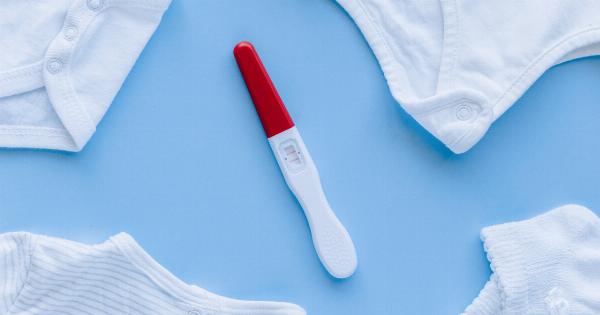When trying to conceive, pregnancy tests can be a stressful and anxiety-inducing experience, especially when the results are inaccurate. While these tests have advanced over the years, they are still not 100% foolproof.
There are several factors to consider when taking a pregnancy test, and understanding these can help you navigate the process with more confidence. Here, we take a closer look at the factors that can affect the accuracy of pregnancy tests.
Types of Pregnancy Tests
Before we delve into the factors that affect the accuracy of pregnancy tests, let’s first understand the different types of tests available. There are two main types of pregnancy tests – urine and blood tests.
Urine Tests
Urine tests are the most common type of pregnancy test and are available over-the-counter at drug stores.
These tests detect the presence of Human Chorionic Gonadotropin (hCG) in the urine, a hormone produced by the placenta after a fertilized egg has implanted into the uterus. These tests are relatively simple to use and can provide accurate results as early as a few days after a missed period.
Blood Tests
Blood tests are more sensitive than urine tests and can detect pregnancy earlier. There are two types of blood tests, quantitative and qualitative.
Quantitative blood tests measure the exact amount of hCG in the blood, while qualitative blood tests simply give a yes or no answer to whether hCG is present in the blood. Blood tests are typically used in conjunction with other medical procedures, such as fertility treatment or to monitor the progress of a high-risk pregnancy.
Factors That Affect Pregnancy Test Accuracy
While pregnancy tests are convenient and easy to use, they are not always accurate. Several factors can affect the results of a pregnancy test, including:.
Timing
The timing of a pregnancy test can greatly affect its accuracy. For urine tests, taking the test too early can result in a false negative. This occurs because hCG levels may not yet be high enough to detect, even though you are pregnant.
It is best to wait until after a missed period before taking a home pregnancy test. Blood tests can detect pregnancy earlier, but even then, it is best to wait at least a week after conception before getting a blood test.
User Error
Human error can also affect the accuracy of a pregnancy test. Failing to follow the instructions correctly, testing at the wrong time of day, or using a test that has expired can all contribute to inaccurate results.
It is important to carefully read and follow the instructions included with the pregnancy test to increase accuracy.
Medications
Some medications can affect the results of a pregnancy test. Medications that contain hCG, such as those used in fertility treatments, can cause a false positive result.
Other medications, such as those used to treat Parkinson’s disease or psychosis, can interfere with hCG levels, resulting in a false negative. If you are unsure whether a medication you are taking can affect a pregnancy test, talk to your doctor.
Medical Conditions
Some medical conditions can affect the results of a pregnancy test. Conditions that affect hCG production, such as ectopic pregnancy or gestational trophoblastic disease, can result in false positive results.
Similarly, conditions that affect the pituitary gland or thyroid function can also impact hCG levels, leading to false negatives.
Lifestyle Factors
Factors such as smoking, alcohol consumption, and stress can also impact the accuracy of a pregnancy test. These lifestyle factors can interfere with hCG levels, which can result in false negatives or positives.
It is important to maintain a healthy lifestyle during pregnancy, but also when trying to conceive.
Conclusion
Pregnancy tests are a useful tool for determining whether or not you are pregnant. However, they are not always accurate. Several factors can impact their accuracy, including timing, user error, medications, medical conditions, and lifestyle factors.
Understanding these factors can help you navigate the process of taking a pregnancy test with more confidence and accuracy.



















